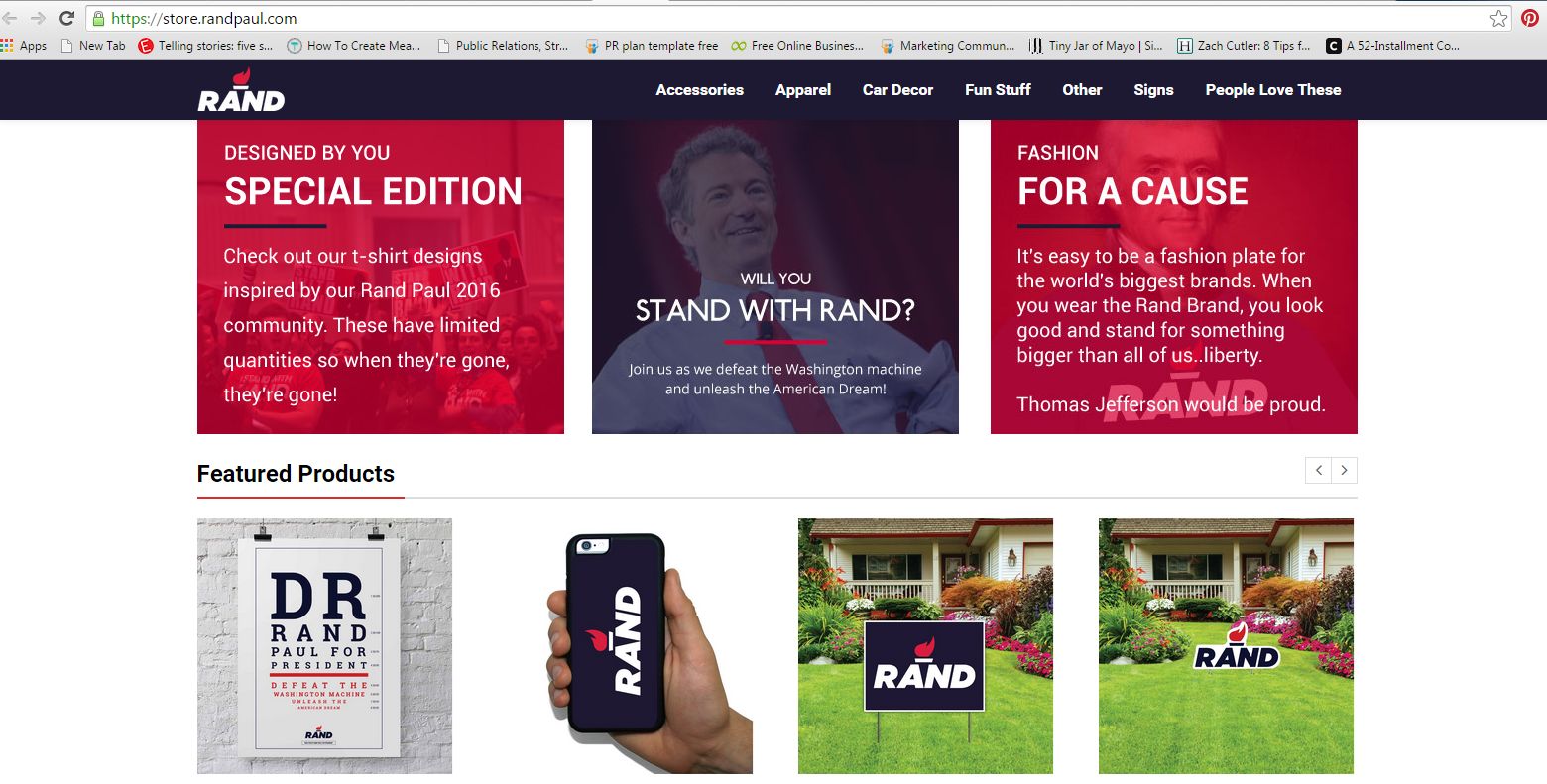Politicians and political communication professionals have come to frequently rely on insights and personnel from the discipline of brand management to improve their external presentation. Political branding seems to be en vogue and is pursued as a deliberate strategy by political actors.
Today’s society is undeniably brand conscious. We’re attracted to brands that project messages we like. Companies (politicians) now are using that equity to deepen relationships with customers (citizens) by offering supporting products that reflect the personality of the brand. It’s called relationship marketing and it works.
According to Rafaeli, Sagy and Rozin in the book “Logos and Initial Compliance: A Strong Case of Mindless Trust” (2008), defined Symbols as “…representations of organizational culture and values,… identity,… emotion,…and legitimacy”. Essentially, people subconsciously associate meaning with logos and connect ideas and opinions to visual elements.
Rafaeli et al explain the meaning and value logos bring to entities by developing a comprehensible identity for consumers. The consumer then has a more immediate reaction when they see that visual element in the future, and tie the emotion to the idea and brand. They add that the social context of the logo can evoke emotion or action from the consumer.
Political branding is about how a political organisation or individual is perceived overall by the public. It is broader than the product; whereas a product has distinct functional parts such as a politician and policy, a brand is intangible and psychological.
A political brand is the overarching feeling, impression, association or image the public has towards a politician, political organisation, or nation. It helps the party or candidate to help change or maintain reputation and support, create a feeling of identity with the party or its candidates and create a trusting relationship between political elites and consumers.
Senator Rand Paul of Kentucky who officially declared himself a candidate for the Republican presidential nomination on Tuesday, already stands out with his political branding strategy.
Having promised a crowd of cheering supporters that he is ready to shake up Washington and disprove those in his own party who doubt that a fiercely libertarian conservative can be a serious contender, his campaign website revealed an e-commerce store with of branded items for his fans and supporters.
The strategy will no doubt further market his personality and resonate in the minds of many across the State and beyond.
The Rand Paul's online store offers branded apparel, accessories, car items, decor, fun stuffs, signs etc.
Since riding the tea party wave into the Senate in 2010, Paul has carefully built a brand of mainstream libertarianism
The 52-year-old grew up in Lake Jackson, Tex., in a part of the world where the libertarian philosophy is second nature for a lot of people.
Whether this strategic communication among others will serve as a catalyst for him to become the next American president... We keep our fingers crossed.
Today’s society is undeniably brand conscious. We’re attracted to brands that project messages we like. Companies (politicians) now are using that equity to deepen relationships with customers (citizens) by offering supporting products that reflect the personality of the brand. It’s called relationship marketing and it works.
According to Rafaeli, Sagy and Rozin in the book “Logos and Initial Compliance: A Strong Case of Mindless Trust” (2008), defined Symbols as “…representations of organizational culture and values,… identity,… emotion,…and legitimacy”. Essentially, people subconsciously associate meaning with logos and connect ideas and opinions to visual elements.
Rafaeli et al explain the meaning and value logos bring to entities by developing a comprehensible identity for consumers. The consumer then has a more immediate reaction when they see that visual element in the future, and tie the emotion to the idea and brand. They add that the social context of the logo can evoke emotion or action from the consumer.
Political branding is about how a political organisation or individual is perceived overall by the public. It is broader than the product; whereas a product has distinct functional parts such as a politician and policy, a brand is intangible and psychological.
A political brand is the overarching feeling, impression, association or image the public has towards a politician, political organisation, or nation. It helps the party or candidate to help change or maintain reputation and support, create a feeling of identity with the party or its candidates and create a trusting relationship between political elites and consumers.
Senator Rand Paul of Kentucky who officially declared himself a candidate for the Republican presidential nomination on Tuesday, already stands out with his political branding strategy.
Having promised a crowd of cheering supporters that he is ready to shake up Washington and disprove those in his own party who doubt that a fiercely libertarian conservative can be a serious contender, his campaign website revealed an e-commerce store with of branded items for his fans and supporters.
The strategy will no doubt further market his personality and resonate in the minds of many across the State and beyond.
The Rand Paul's online store offers branded apparel, accessories, car items, decor, fun stuffs, signs etc.
Since riding the tea party wave into the Senate in 2010, Paul has carefully built a brand of mainstream libertarianism
The 52-year-old grew up in Lake Jackson, Tex., in a part of the world where the libertarian philosophy is second nature for a lot of people.
Whether this strategic communication among others will serve as a catalyst for him to become the next American president... We keep our fingers crossed.




In American presidential elections, branding and marketing are crucial. I am an expert in the field of branding services. Candidates can visually reflect their politics and develop a consistent message by using a strong logo, slogan, and images, as well as, more lately, social media. Even with just a glance, the finest marketing brands can convey a sense of their ideology.
ReplyDelete